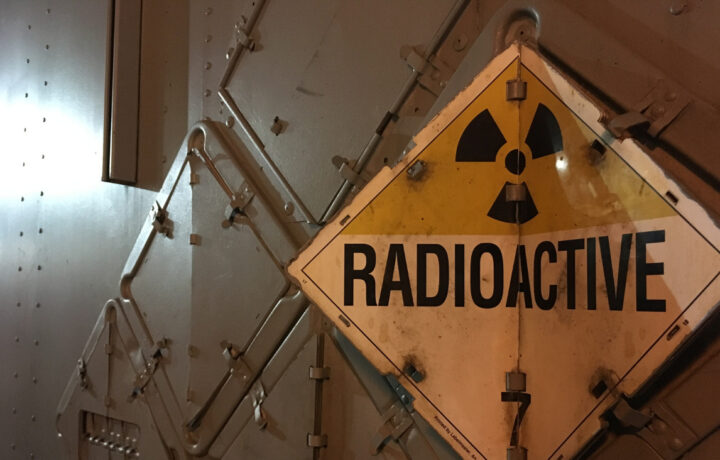The Personnel Reliability Program (PRP) is a DoD program. Personnel in PRP positions are responsible for performing duties associated with U.S. nuclear weapons, nuclear command and control (NC2) systems and equipment, positive control material (PCM), and special nuclear material (SNM). Personnel assigned to or are in training for assignments to PRP positions must be certified and enrolled in the PRP. The PRP is designed to ensure that individuals with access to nuclear weapons or related systems meet and maintain the highest standards of mental stability/alertness, technical competence, and reliability. The PRP is closely related to the Department of Energy’s Human Reliability Program (HRP).
All PRP positions are sensitive national security positions and are categorized into two levels—Controlled Positions and Critical Positions. To occupy a Controlled or Critical PRP position the individual must have a Secret or Top Secret security clearance, respectively. All personnel selected for PRP positions are subject to drug testing, and personnel selected for designated NC2 PRP positions are subject to random counterintelligence scope polygraph examinations. The behavior and performance of personnel certified to occupy PRP positions must be subject to “frequent and consistent” observation by the PRP certifying official and others.
SELECTION/CERTIFICATION
PRP nominees are evaluated by a PRP certifying official based on the Personnel Security Investigation (PSI) that was previously conducted for their security clearance, plus a review of personnel and health records, position qualification requirements, and a personal interview. The following PRP eligibility criteria are listed in DoD Manual 5210.42, Nuclear Weapons Personnel Reliability Program (the “Manual”):
(1) Be dependable, mentally alert, and technically proficient commensurate with their respective duty requirements.
(2) Be flexible in adjusting to changes in the working environment, including ability to work in adverse or emergency situations.
(3) Have good social adjustment, emotional stability, personal integrity, sound judgment, and allegiance to the United States.
(4) Have a positive attitude toward nuclear weapons duty.
The Manual enjoins certifying officials to consider certain variables under a Whole-Person concept, when evaluating the relevance of an individual’s conduct. These variables are enumerated in the Manual at Appendix 4 to Enclosure 3. The variables are similar to the guidelines contained in the National Security Adjudicative Guidelines (NSAG). Except, there are no variables for Allegiance to the United States, Foreign Influence, Foreign Preference, Sexual Behavior, or Outside Activities, and there is an additional variable for Sexual Harassment and Assault. Surprisingly, the Manual does not list the nine factors at paragraph 2(d) of the NSAG that are considered Whole Person factors for determining eligibility for sensitive national security positions.
MANDITORY DECERTIFICATION/DISQUALIFICATION
The Manual lists the following “Mandatory Decertification or Disqualification” conditions:
- An individual diagnosed with alcohol use disorder who subsequently fails or fails to participate in the prescribed rehabilitation program or treatment regimen.
- An individual found to be involved in the unauthorized trafficking, cultivation, processing, manufacturing, or sale of any controlled or illegal drug, including cannabis-based products.
- An individual found to have ever used a drug that could cause flashbacks.
- An individual diagnosed with severe substance use disorder.
- Loss of confidence by the certifying official in the reliability in the individual.
- Revocation of the individual’s security clearance.
SUSPENSION
When unfavorable information surfaces regarding a PRP member’s eligibility to perform PRP duties, their certification can be temporarily suspended and they can be removed from PRP duties by the certifying official without starting decertification action. This allows time to determine whether cause exists to decertify an individual. For example, suspension would be appropriate, when a PRP member has displayed suspected suicidal behavior, pending the results of a mental health assessment. Suspensions can be imposed for a period of up to 3 months and extended in 3-month increments for up to 1 year.
DECERTIFICATION
Decertification action initiated by the certifying official must be approved by a reviewing official, who is at a level above that of the certifying official and who is responsible for local management of the PRP. Decertification is based on an individual’s failure to meet the reliability standards specified in the Manual.
An individual will be notified in writing by the certifying official within 15 days of a determination that the individual no longer meets PRP standards. This notification will include the reasons for the decertification and the requirement for a review by the reviewing official. The individual is temporarily removed from PRP duties pending the review, and the reviewing official may seek additional information or explanations of extenuating circumstances from the certifying official, the competent medical authority, personnel officials, and the individual concerned, if appropriate. The reviewing official must notify the certifying official and the individual of the findings and conclusion within 15 working days.
DUE PROCESS
In accordance with the Manual, each DoD Component has developed and implemented its own due process procedures. For example the Army (AR50-5) and Navy (SECNAVINST 5510.35D) grant individuals the right to submit written rebuttals to the certifying official’s written notice of decertification. Additionally, the Navy grants Navy civilians and military personnel the right to appeal a reviewing official’s an adverse decision. The Air Force (DAFMAN 13-501) only permits individuals to request reconsideration by a higher authority of the reviewing official’s decision to decertify or permanent disqualify.
INTERIM CERTIFICATION AND REINSTATEMENT/REQUALIFICATION
The Manual provides that Interim Certification can be granted based on a previously granted a security clearance where the investigation has gone out of date, provided a new investigation has been initiated and other eligibility requirements have been completed favorably. There are duty limitations for individuals with Interim Certification. Reinstatement/Requalification can be initiated by a PRP reviewing or certifying official (generally based on an individual’s request). Requests for requalification of an individual who was disqualified prior to certification, or reinstatement of an individual who was decertified from the PRP can be made if the reason(s) for the disqualification or decertification no longer exists and the individual currently meets prescribed eligibility standards. DoD Component heads are the approval authority for requalification or reinstatement.
Copyright © 2025 Federal Clearance Assistance Service. All rights reserved.




